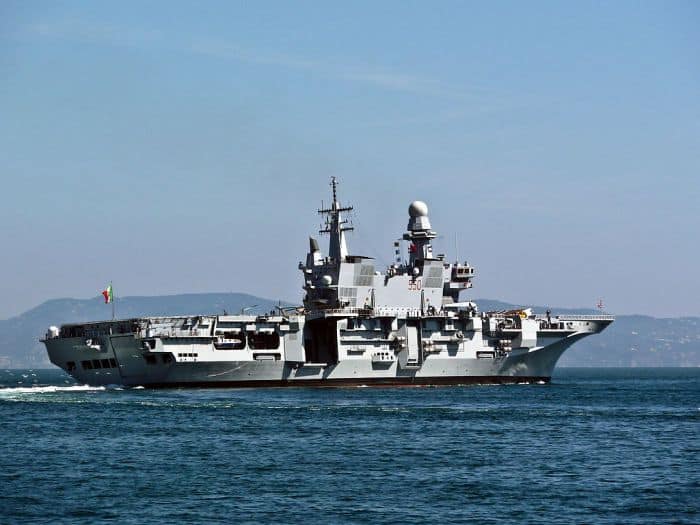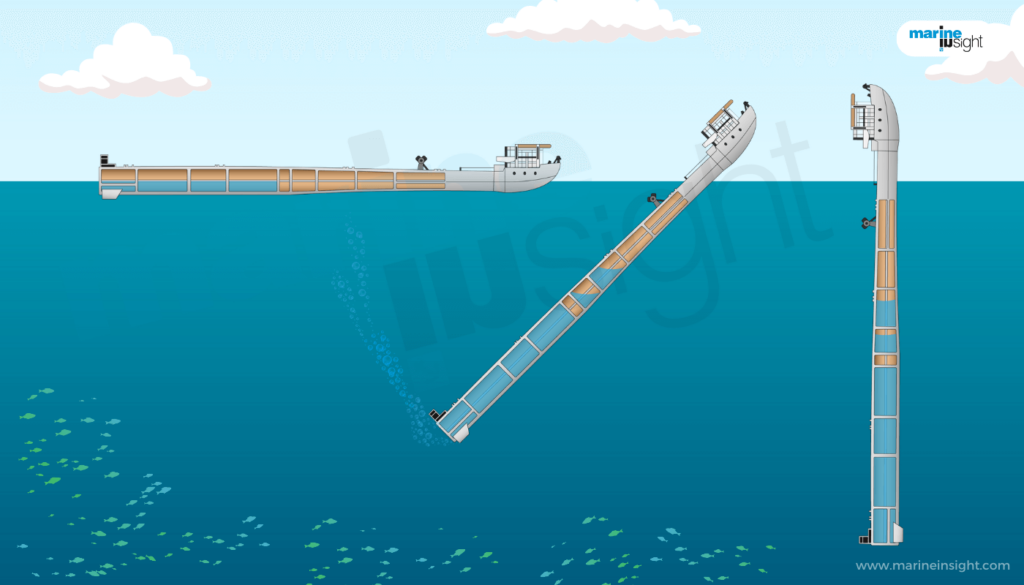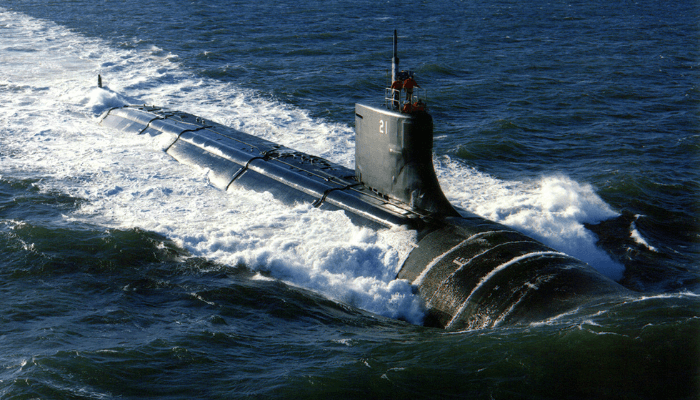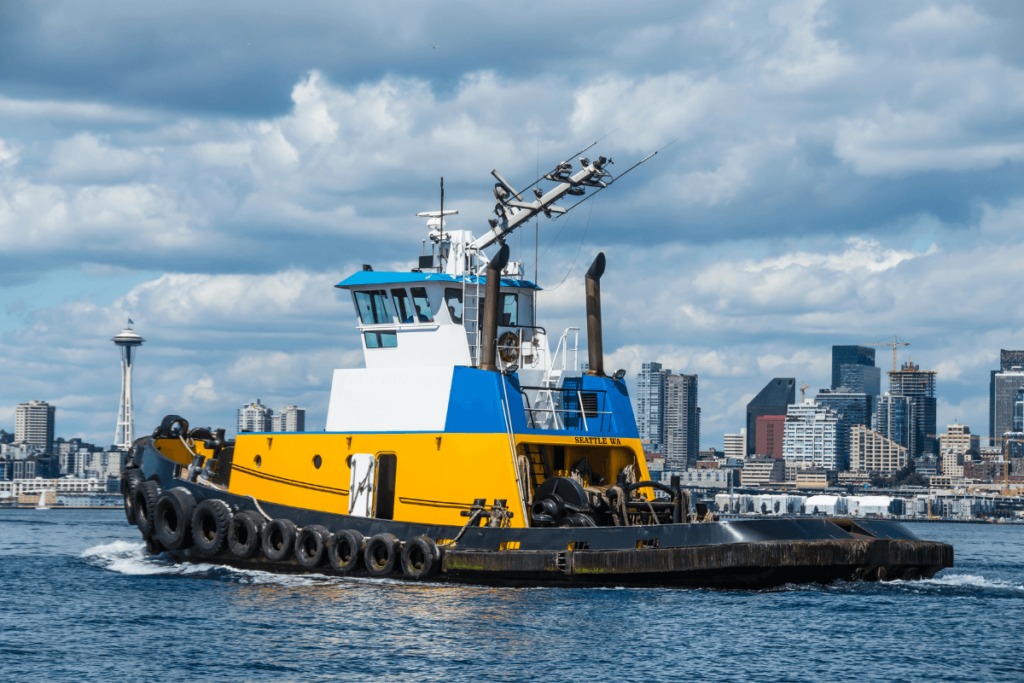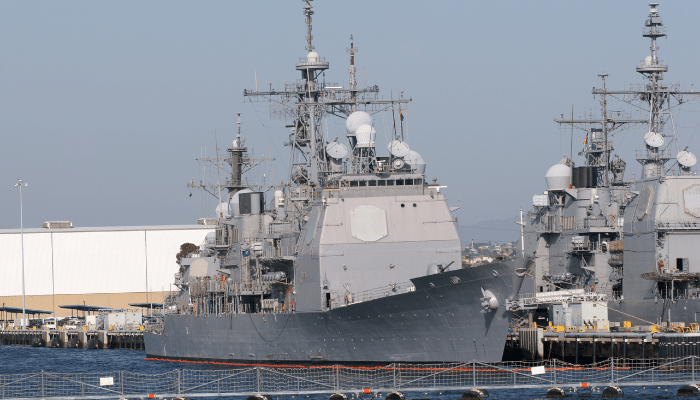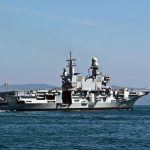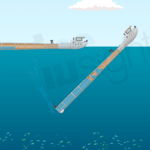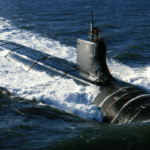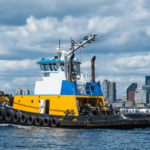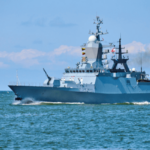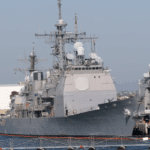Top 16 Biggest LNG Ships of 2024
(Updated for 2024) Liquified Natural Gas has a diverse range of uses in the commercial, industrial, transportation and energy sectors as it is a clean and environmentally sustainable fuel. Hence, the global LNG market has steadily expanded in recent years. This increased worldwide demand has prompted maritime developments to construct bigger and better LNG carriers.
Decked with the latest maritime innovations and designed to perfection, these LNG tankers can operate in the toughest areas, such as the North Atlantic, filled with ice waters.
In this article, let us look at the world’s biggest LNG Ships of 2024 and their distinguishing features.
1. Al Dafna ( Q-Max LNG Carrier)
Nakilat Shipping Qatar Ltd manages and operates the Q-Max LNG Carrier Al Dafna. It is an LNG tanker that is currently sailing under the Marshall Islands Flag.
It was constructed in 2009 in Korea by Samsung Heavy Industries and has a gross tonnage of 163922 and a deadweight of 130157. It has an overall length of 345 m and a 53.8 m beam. It has a LNG carrying capacity of 266,366 m3.
Qatar Gas, a prominent LNG company, operates Qmax Ships. The Qmax LNG carriers are the biggest in the world, wherein the name ‘QMax’ stands for the country of operation and the maximum size of the tanker able to dock at Qatar’s LNG terminal facilities. These LNG tankers use a type of membrane technology that ensures maximum efficiency.
Qatar Gas owns 14 Q-Max Ships with a total LNG capacity between 26,3000 to 266,000 m3. The Q-max ships are around 354 m long and 55 m wide, with a maximum draft of 12 m. The construction of these vessels was part of an expansive fleet construction programme that evolved over five decades. These carriers were built in South Korea and currently transport LNG to all major port facilities worldwide.
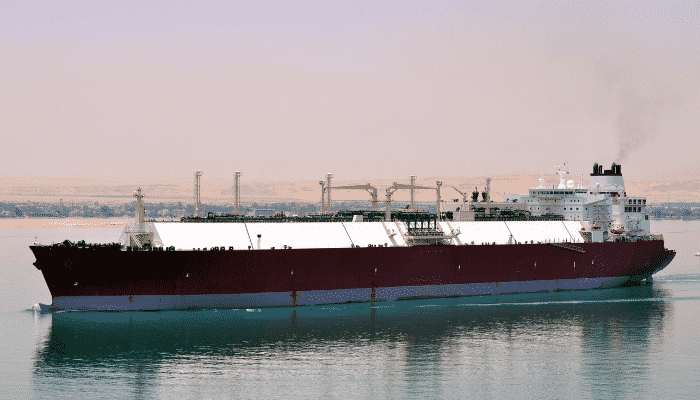
The Q-Max ships are known not only for their size but for their other advanced features too. The ships’ engines burn significantly fewer amounts of fuel compared to conventional carriers, hence producing 35% lesser carbon emissions. Another novel feature is the non-carbon fire-extinguishing system, the first to be used in an LNG carrier. Thus, these carriers have drastically reduced the costs of transportation.
2. Mozah
This Q-Max LNG carrier was constructed in 2008 by Samsung Heavy Industries. It is named after Sheikha Moza bint Nasser, wife of Sheikh Hamad bin Khalifa Al Thani who was then the Emir of Qatar.
Mozah is 345 m long and 53 m wide with a 12 m summer draft. Its humongous size is combined with its efficiency and profitability.
Mozah has a deadweight of 128,900 DWT and has a gross tonnage of 163,922 GT. These features allow it to carry 266,000 m3 of LNG with a temperature of −163 °C.
3. Al Ghashamiya ( Q-Flex LNG Carrier)
This Q-Flex LNG Carrier was built in 2009 and is presently sailing under the Marshall Islands Flag. Its LNG carrying capacity is 211,885 m3. It has an LOA of 315.06 m and is 50.03 m wide.
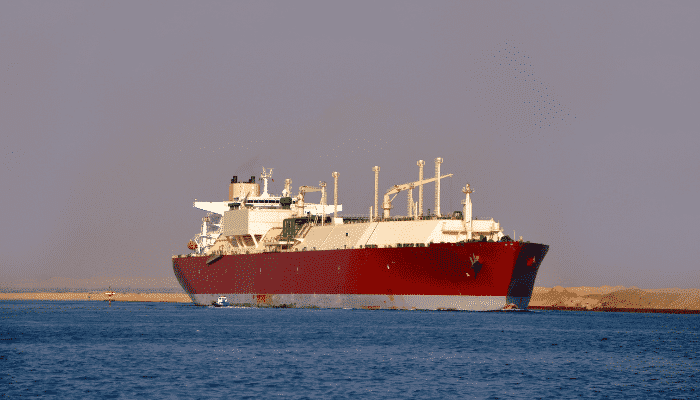
The QFlex ships’ fleet operated by Qatar Gas comprises the second-biggest LNG carriers in the world. Until the Qmax-type ships were not in operation, these were the biggest LNG carriers, capable of carrying twice the amount of LNG carried by conventional tanker ships. The first Q-Flex ship was constructed by Hyundai Heavy Industries in 2007.
A total of 31 of these LNG Tankers carry LNG to regions like the Far East, Mediterranean, and Europe. Measuring 315 m lengthwise and 50 m breadthwise with a maximum draft of 11 m, these carriers have a carrying capacity of 210,000 to 217,000 m3.
They are also claimed to be more environmentally sustainable than other LNG carriers since they have fewer fuel requirements and produce fewer emissions. They also possess re-liquefaction technology that decreases the loss of LNG from the ships’ tanks. The earliest Q-flex vessels include Al Hamla, Al Aamriya, Al Huwaila etc.
4. Gail Bhuwan
The LNG Tanker named Gail Bhuwan was manufactured in 2021 by Daewoo Shipbuilding & Marine Engineering Co., Ltd. for Gail Limited, the biggest LNG company in India. The tanker would transport LNG from US facilities to the Indian ports to meet India’s LNG needs and expand this clean fuel market in the nation.
Currently, Gail Bhuwan is registered and is sailing under the flagship of Cyprus. A massive tanker laden with the latest maritime technology, it measures 297.9 m lengthwise and 47.9 m breadthwise, with a maximum draft of 11.5 m.
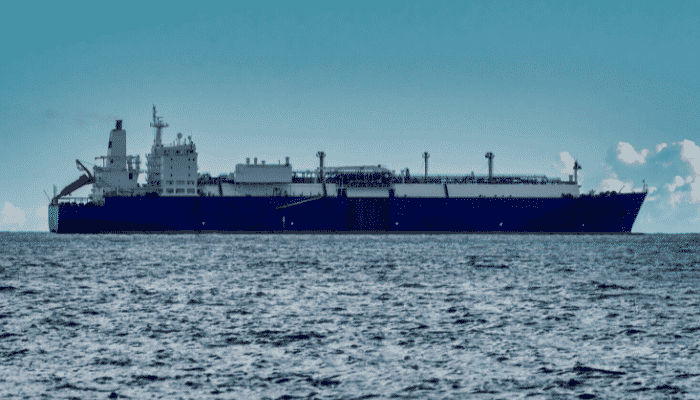
The gross tonnage of the vessel is around 119891 tonnes, and its deadweight is 98300 tonnes. It has an LNG carrying capacity of 180,000 m3 and a maximum sailing speed of 20 knots, with an average speed of around 15.9 knots approximately. A membrane-type LNG tanker, it is operated by MOL LNG Transport Europe LTD.
5. LNG Schneeweisschen
This LNG Ship was constructed in 2018 by DSME and is presently sailing under the flag of Panama. It is 297.9 m long and 47.9 m wide. It has an 11.5 m draft and a cargo tank capacity of 180,000 m3.
It is endowed with an X-DF double engine with a twin shaft system and can attain a speed of 19.5 knots easily. The DWT of the vessel is 98747 tonnes, and the Gross Tonnage is 119660 tonnes.
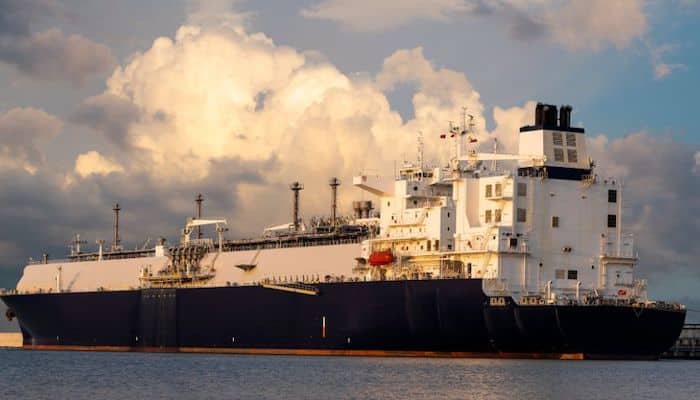
It is managed by MOL LNG Transport ( Europe) Ltd and is owned jointly by MOL and Itochu.
6. Shinshu Maru
Constructed in 2019 by Kawasaki Heavy Industries, Shinshu Maru has an LNG carrying capacity of 177,000 m3. It was designed to pass through the recently expanded Panama Canal that opened for complete operations in 2016.
The LNG tanker is sailing under the flag of Bahamas and is used by JERA for shipping NG procured through the Freeport LNG Project in the United States.
It has standard hull dimensions but bigger cargo tanks, cutting costs and increasing efficiency. Hull is optimised for reducing the overall weight of the vessel. It also has a 2-motor, twin-screw propulsion system along with a DFD electric propulsion system
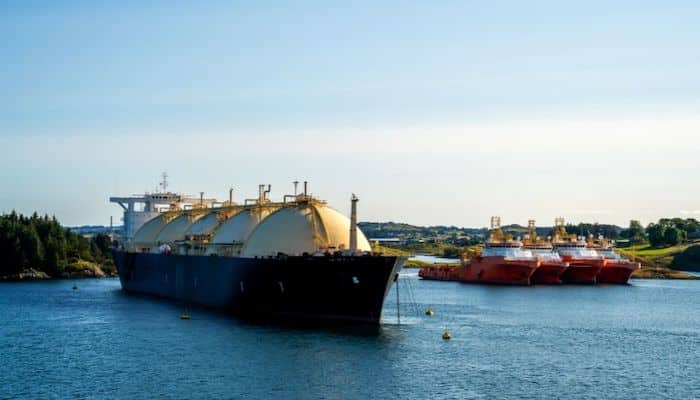
It is 299 m long and 48 m wide, with a gross tonnage and deadweight of 135,951 tonnes and 82,287 tonnes, respectively. It has a 9.8 m draught and a speed of 19.5 knots.
7. SCF Barents (KOOL FIRN)
KOOL FIRN is an LNG tanker constructed in 2020 for Sovcomflot, becoming the first of the two gas-fuelled LNG ships in charter for Shell Singapore. It is presently sailing under the flag of Liberia.
It has a carrying capacity of 174,096 m3 of Liquid Gas. Kool Firn has a draught of 9.6 m and is 299 m long and 46.4 m wide. It was earlier named SCF Barents after Willem Barents, a Dutch Navigator.
8. British Partner
The LNG tanker British Partner was constructed in 2018 by South Korea’s famous shipbuilding corporation, Daewoo Shipbuilding and Marine Engineering Ltd, for BP Shipping. It is the biggest gas carrier the shipping corporation has owned or operated till now.
With an IMO of 9766530, the tanker is presently sailing under the flagship of the United Kingdom. The tanker is 295 m long and 46 m broad with a maximum draught of 11.4 m, and her total LNG carrying capacity is 174,000 m3. The carrier can attain a maximum sailing speed of about 16 knots and an average speed of about 15.
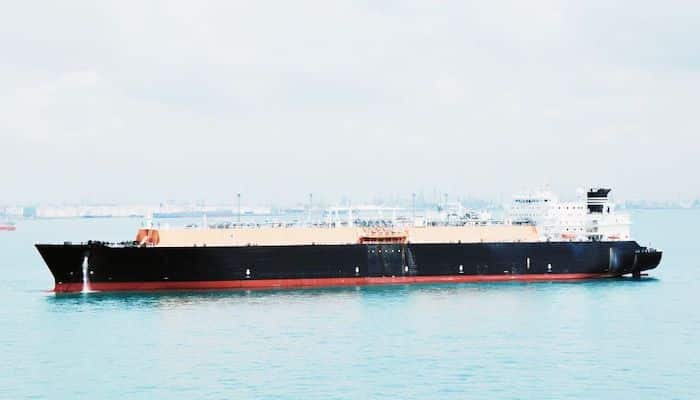
The tanker comprises the tri-fuel engine technology, with other advanced features such as a reliquefaction system and automated gas-injection propulsions.
British Partner and other carriers of BP’s LNG fleet would be operational in not just developed economies but also gradually expanding markets such as Egypt, Pakistan, Bangladesh etc.
9. Flex Courageous
This LNG Ship was constructed in 2019 by DSME and is presently sailing under the flag of the Marshall Islands.
Flex Courageous has an LNG carrying capacity of 173,400 m3. It is 295 m long and 46 m wide with a current draught of 9.6 m.
It is equipped with a high-pressure 2-stroke MEGI Engine and a reliquefaction system, which brings the boil-off rate to an industry low of 0.075%.
10 . Velikiy Novgorod & Pskov
Gazprom, a multinational Energy Enterprise, owns an LNG fleet comprising 5 LNG tankers, of which 2, namely Velikiy Novgorod and Pskov, are the third-largest LNG carriers in the world.
The total LNG carrying capacity of both gas carriers is around 170,200m3. Both ships were designed to ensure high productivity while adhering to environmental norms and regard for maritime safety. They were designed by engineers from the Russian Maritime Register, United Shipbuilding Company and Gazprom.
Velikiy Novgorod was built in 2014 and is owned by Sovcomflot, the biggest shipping company in Russia, operated by Gazprom, adding to the strengthening of the Russian LNG fleet. It is presently sailing under the flagship of Liberia, and its homeport is Monrovia.
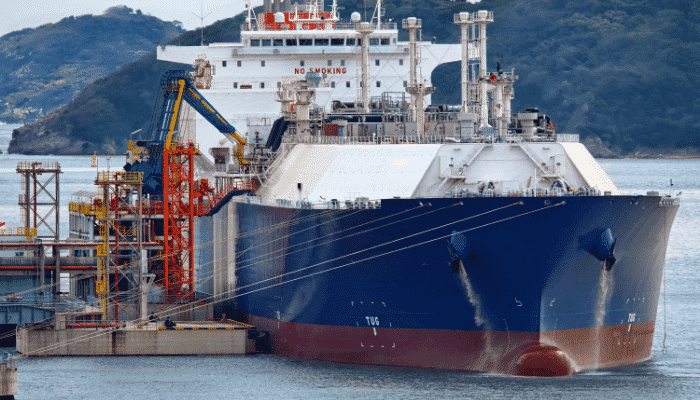
The ship’s total length is 300 m, and its width is around 45.8 m, with a maximum draught of 11.6 m. It is the first of its kind, a special LNG carrier called Atlanticmax, with a thicker hull and other arrangements to cut through thick ice found in the region.
It is equipped with a dual-fuel propulsion system that enables it to operate in the iceberg region of the north. Her gross tonnage is reported to be 113876 tonnes, while her deadweight is 93486 tonnes.
The Pskov was also constructed in 2014 and is under the flagship of Liberia. Earlier known as P OSF and BCOV, she measures 299.9 m lengthwise and 45.8 m breadthwise. Her draught is reported to be 9.2 m, while its maximum sailing speed is about 10.2 knots.
11. Diamond Gas Orchid
Constructed in 2018 by Mitsubishi Shipbuilding Co. Ltd., this LNG Ship is sailing under the flag of Singapore. It has a 165,000 m3 of LNG carrying capacity and has a current draught of 11.2 m.
It is a Sayaringo STaGE next-generation LNG carrier with a continuous steel cover, which decreases the weight of the ship and air resistance while increasing its carrying capacity.
The ship also has a hybrid propulsion system, an efficient reheating steam-type marine turbine and a dual-fuel diesel engine that can function on gas and oil. Diamond Gas Orchid is 293.5 m long and 48.94 m wide. It has a gross tonnage of 144 828 tonnes.
12. Aseem
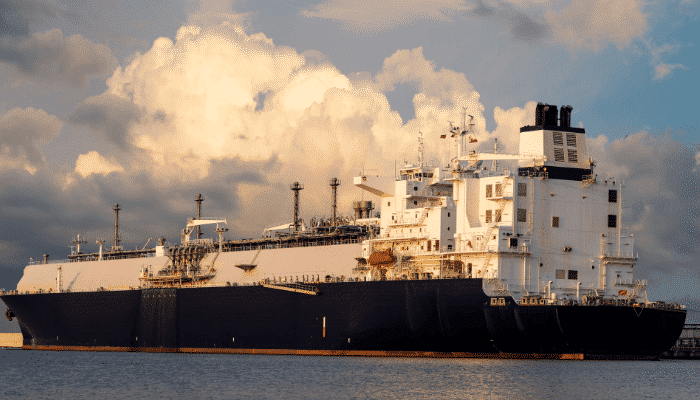
Aseem is a traditional LNG tanker operated by Qatar Gas. It was constructed in 2009 by Samsung Shipbuilding & Heavy Industries Corporation Limited in South Korea. The carrier is presently under the flagship of Malta. Formerly known as Ccyem and Asaem, it had sailed under the Irish flag earlier. Its homeport is Valetta, and it is owned by the Shipping Corporation of India.
Aseem measures 285.1 m lengthwise and 43.4 m breadthwise, while its maximum draught is around 8.9 m. The LNG carrying capacity of Assem is about 154, 948 m3. Her gross tonnage was estimated to be more than 97800 tonnes, while its deadweight is approximately 86655. The tanker can reach a maximum speed of 20.5 knots, while its average sailing speed is 16.6. It is equipped with a special low-fuel General Motors 12V228 dual-engine, which offers high proficiency while reducing the ship’s carbon footprint.
13. Ob River & Amur River
The LNG tanker OB River was constructed in 2007 by Hyundai Heavy Industries Co. LTD in South Korea. It was formerly known as Ob Rkvur and Clean Power and was classified by the Lloyd’s Shipping Register as a Class 1A carrier capable of trodding in tough ice conditions. The tanker is currently sailing under the flag of the Marshall Islands.
The tanker measures 288.22 m lengthwise and 44.27 m breadthwise with a draught of 9 m. Her home port is Majuro, and its LNG carrying capacity is 149,734.6 m3, while her maximum sailing speed is 18.5 knots, and her average speed is reported to be 7.7 knots. Owned by Dynagas, Greece, the ship’s gross tonnage is 100244 tonnes, and its deadweight is approximately 84682.
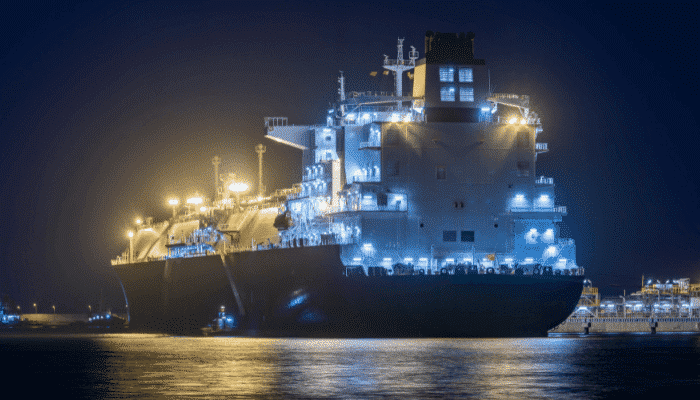
Constructed in 2008 by Hyundai Heavy Industries, Ulsan, South Korea, the Amur River is an LNG carrier presently under the flagship of the Marshall Islands. Formerly known as Clean Force, the vessel is 288 m long and 44 m broad with a draught of 9 m. The ship’s LNG carrying capacity is an enormous 149,742.764 m3, while her maximum sailing speed is estimated to be 14 knots, and her average speed is 7 knots. The ship owned by Dynagas has a deadweight of 84598 tonnes, and her gross tonnage is 100244 tonnes.
Both the LNG carriers, the Ob River and Amur River, are a part of the Gazprom LNG fleet. They have high-tech features such as a Kawasaki Japan KHI – UA400 Steam Turbine Propulsion system and a GTT Mark 3 containment system.
14. Arctic Princess & Arctic Lady
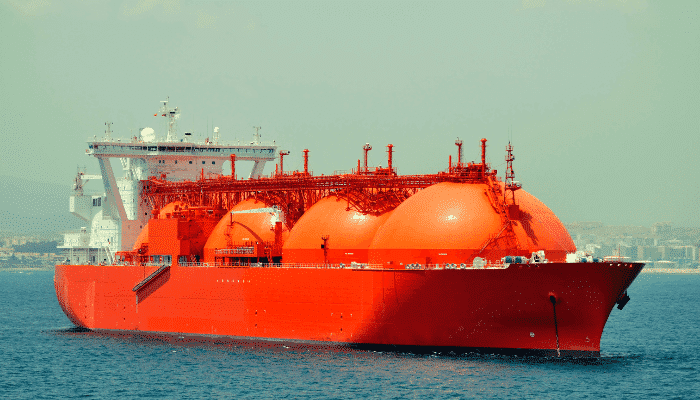
Hoegh LNG offers LNG transportation services, and among its fleet, two carriers, namely the Arctic Princess and the Arctic Lady, are one the largest in the world. Both LNG tankers were constructed in 2006 by Mitsubishi Heavy Industries. With a moss containment system, these carriers have a carrying capacity of 147,980 cubic meters. Classified by DNV-GL, they are sailing under the flag of Norway.
With a total length of 288 m and a breadth of 49 m, they are driven by a powerful steam turbine engine. They have a draught of 12.3 m and a gross tonnage and deadweight of 121597 tonnes and 84,878 tonnes, respectively. Their sailing speed is around 19 knots.
15. Arctic Discoverer
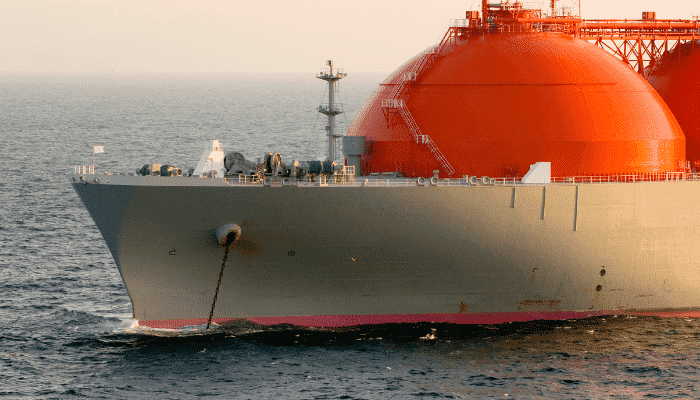
The LNG carrier Arctic Discoverer was constructed in 2006 by Mitsui Ichihara Engineering and Shipbuilding, Japan and is owned by K-Line LNG Shipping UK. Classified by DNV, the tanker’s carrying capacity is 140,000 m3, and it is presently sailing under the flag of the Bahamas. Her length is 289. 5 m, and her breadth is 48.5 m, while her draft is around 11.2 m. The ship’s gross tonnage is 118571 tonnes, while her deadweight is about 75485.
16. Al Khaznah
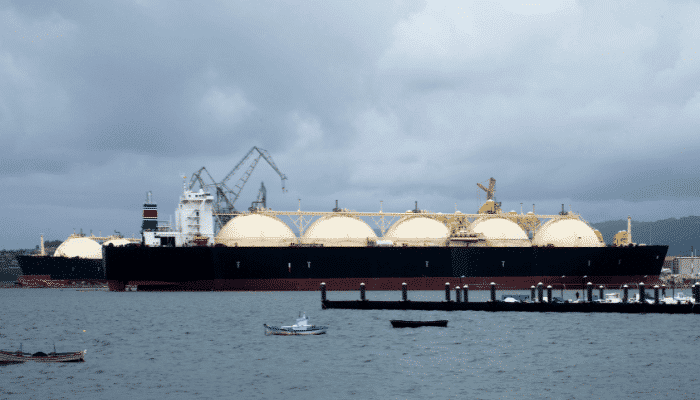
The LNG carrier Al Khaznah was constructed in 1994 and is sailing under the Liberian flag. It is owned and managed by National Gas Shipping Abu Dhabi, UAE.
The tanker’s carrying capacity is 137,540 m3, and it measures 293 m lengthwise and 45.84 m breadthwise. Formerly known as LNG Al Khaznah, her draught is estimated to be 9.9 m.
The ship’s gross tonnage is 110895 tonnes, while her deadweight is 71543 tonnes. Powered by a 28700 KW steam turbine engine, the ship’s homeport is Monrovia.
You might also like to read:
- LNG Bunkering Procedure Of Ships Explained
- A Guide To Types of Ships
- 5 Biggest Tanker Ships In the World
- Top 10 Biggest Ice Breaker Ships in the World in 2022
- Top 10 Largest Cruise Ships in 2022
Do you have info to share with us ? Suggest a correction
Latest Type Of Ships Articles You Would Like:
Subscribe To Our Newsletters
By subscribing, you agree to our Privacy Policy and may receive occasional deal communications; you can unsubscribe anytime.



